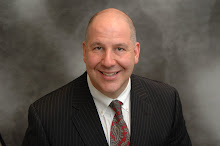May an attorney draft his expert’s
report?
The recent Numatics v.
Balluff, 13-CV-11049 (E.D. Michigan) (Dec. 16, 2014) opinion delineates the
scope of attorney "assistance" in preparing expert reports in the
wake of last year's Barrick v. Holy Spirit Hospital, 91 A.3d 680 (Pa. 2014)
ruling - - codified into Pa. Rule of Civil Procedure 4003.5 - - shielding attorney
and expert communications from discovery by the attorney work-product doctrine.
Prior to the new rules, because
communications between a party's attorney and his testifying expert were routinely
obtained through discovery, an attorney's guidance and input into his expert's
report could often be tracked. While
bringing Pennsylvania practice in line with federal expert discovery rules, the
Barrick decision and Rule 4003.5 fail to clarify whether an attorney may
draft his expert’s report as long as the expert's theories are incorporated
therein.
Numatics v. Balluff Opinion
After recognizing that an
attorney may "assist" in report preparation, including coaching expert
to ensure that the report touches all legally required bases, the Numatics
Court scolded counsel for drafting the report merely to have the expert "review
and sign".
The Numatics Court was
unpersuaded by defense counsel’s claim of only reviewing and correcting report portions
inconsistent with his case view, deeming it insufficient to make report
actually authored by expert following expert's testimony that, if he had
written it, the report would have only been 5 pages and omitted the
"legalness".
The Numatics Court was
also troubled by expert’s spending only 2 or 3 hours reviewing 2,600 pages of
depositions, less than 8 hours reviewing technical literature, and half of his 30
case hours at or traveling to defense counsel's office.
After noting that report’s “obviousness”
section was "nearly indistinguishable" from counsel’s prior
attorney-drafted contentions, the Numatics Court precluded the testimony
of the expert, whom it deemed a "highly qualified puppet".
Pennsylvania Expert Report
Ghostwriting
While differing from the more
restrictive Federal “disclosure of attorney-expert communications” rules, post-Barrick
Pennsylvania practice is now more limited in its disclosure requirements.
While Federal Rule of Civil
Procedure 26(a)(2)(B) states that the report must be "prepared" and
"signed" by the expert, Pennsylvania’s equivalent, Rule 4003.5, only
requires that "answer [to expert interrogatories] or separate report shall
be signed by the expert", omitting the word "prepared" does not
authorize attorneys to write the expert's report.
Although the general rule is
that attorneys can fine-tune reports to comply with submission’s technical
legal requirements (i.e., formatting,
legal elements and scope), an attorney may not assume expert's role in
preparing and drafting the report, the final draft of which must form a true
representation of expert's own thoughts and conclusions.
Additionally, although attorney-expert
communications are protected, because expert time sheets and compensation are
increasingly scrutinized, properly documenting and allocating time spent on the
file is critical.

No comments:
Post a Comment